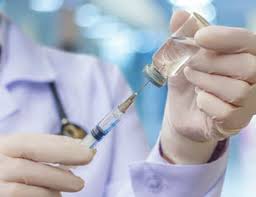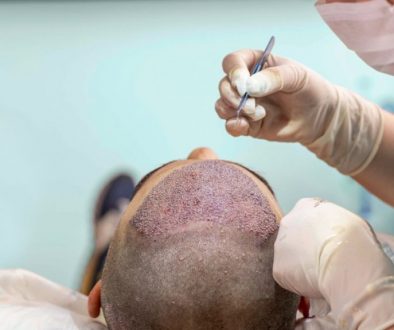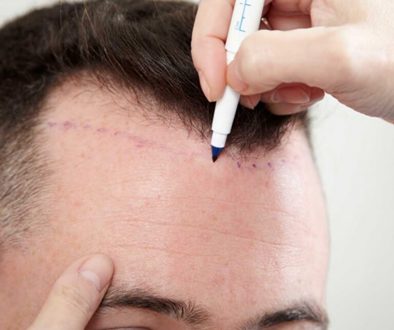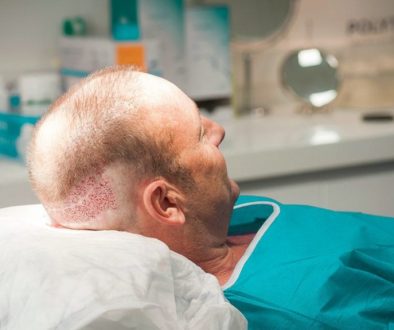Should I Get An Amnio Fill Injection With My Hair Transplant?
I am scheduled to have a hair transplant in two weeks, but I am wondering if I should pay extra money for an amnio fill injection?
AmnioFill is a collagenous matrix derived from placenta and made up of placental extracellular matrix (ECM) tissue. AmnioFill contains ECM proteins, growth factors and cytokines. AmnioFill is primarily used for wound care because of its various healing properties. However, hair transplant surgeons have been combining the use of Acell with Amnio Fill injections to stimulate the growth and yield of their procedures.
Both AmnioFill and Acell are currently used as stem cell therapy to regenerate connective tissue and heal wounds and reduce scarring. However, in the field of hair restoration AmnioFill lacks any medical literature or clinical evidence to support the claims of “hair regeneration” or “hair growth”. AmnioFill injections are administered to patients to improve follicular unit graft survival and stimulate hair growth.
With that said, some world renowned hair transplant surgeons have begun to administer AmnioFill injections to their patients based on their success with Acell. Some hair restoration physicians are claiming that AmnioFill injections are increasing the yield of their procedures by stimulating stem cell production. Unfortunately, there are no studies or data to back these claims.
AmnioFill injections are intended to enhance healing and reduce scar tissue formation, the use of AmnioFill injections may be beneficial to treat donor scars. Both harvesting techniques Follicular Unit Excision (formerly known as follicular unit extraction FUE) and Follicular Unit Strip Surgery (FUSS) produce scars. However, the FUSS harvesting technique produces a linear scar that can go from ear to ear; while the FUE harvesting technique produces small circular scars spread out over the back and sides of the scalp referred to as the donor area. However, unlike Acell AmnioFill is not FDA approved to treat wounds. Unfortunately, there simply isn’t enough clinical evidence to support the claims of stimulated hair growth and yield.
Written and published by,
Melvin- Editorial Assistant and Forum Co-Moderator for the Hair Transplant Network and The Coalition of Independent Hair Restoration Physician




